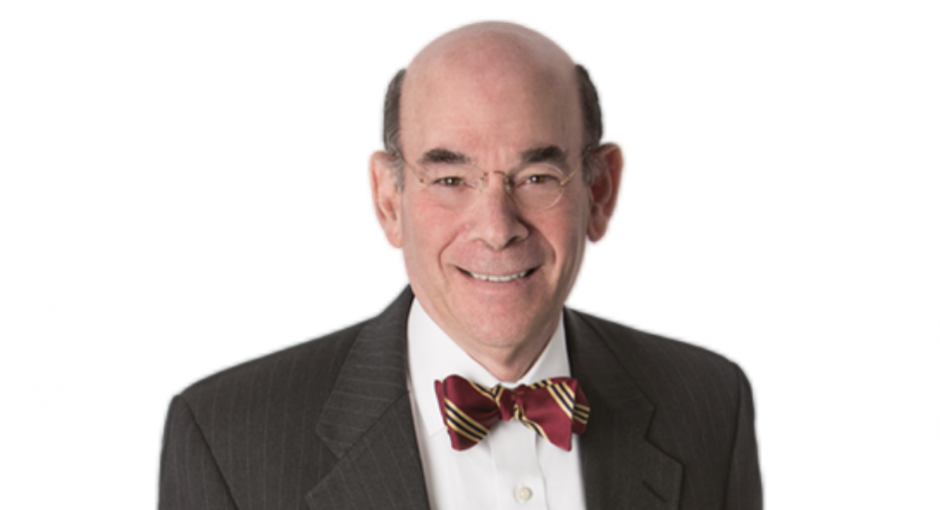Former U.S. Health and Human Services Department General Counsel Robert Charrow yesterday defended his strongly worded and colorful December 2020 advisory opinion, since vacated by a court and withdrawn by HHS, that the 340B statute unambiguously requires drug manufacturers to offer 340B pricing on their products when covered entities use contract pharmacies or other distribution methods.
“I still believe my legal analysis is correct and I would issue it again,” said Charrow, senior chairman of law firm Greenberg Traurig’s health care and Food and Drug Administration practice, during a Sept. 15 webinar on the 340B program hosted by the health care news organization STAT. Charrow, a Stanford law graduate known for his trademark bowties, was appointed in 2017 by President Trump to serve as HHS General Counsel. He has served in various legal positions in Republican administrations as well as several stints in private practice.
Charrow wrote last winter that the 340B statute’s “core requirement” is that “manufacturers must ‘offer’ covered outpatient drugs at or below the ceiling price for ‘purchase by’ covered entities.”
“No amount of linguistic gymnastics can ordain otherwise,” Charrow said, and where the drugs are delivered “is irrelevant.”
“The situs of delivery, be it the lunar surface, low-earth orbit, or a neighborhood pharmacy, is irrelevant,” Charrow memorably said.
A federal district judge, acting in drug manufacturer AstraZeneca’s 340B contract pharmacy lawsuit against HHS and the U.S. Health Resources and Services Administration (HRSA), held last June that Charrow’s position was “legally flawed.” While the judge said that both the government and the manufacturers have valid arguments regarding the legality of the contract pharmacy program, he set aside and vacated Charrow’s opinion in July. During the time in between, HHS withdrew the opinion since the agency believed the opinion had become a distraction and was not needed to make their case. HRSA in May sent letters to AstraZeneca and the five other manufacturers suing it and HHS informing the companies that that their restrictions on 340B contract pharmacy are illegal and must be stopped immediately, and that the companies must repay entities for overcharges or risk being slapped with hefty civil monetary penalties.
“No ifs, ands, buts, or whys”
During yesterday’s webinar, Charrow told STAT Washington correspondent Rachel Cohrs that he approached and wrote his advisory opinion as if he were a federal district judge.
“I looked at the provisions of the statute,” he said. “To me they were fairly straightforward and clear. And absent any words that I may have missed, once a covered entity is a qualified covered entity, they must be offered the drug at no more than ceiling price. There’s no ifs, ands, buts, or whys about it,” he said, “as long as they take title” to the drugs.
These are other highlights from Charrow’s conversation with Cohrs:
- Charrow declined to answer Cohrs’ question why hospitals were not included in the Trump administration’s final rule requiring community health centers to pass along their 340B savings on insulin and EpiPen-style devices to low-income, uninsured, or underinsured patients. “It’s a valid question but unfortunately I can’t answer it,” he told Cohrs. “It was not my decision; it came from elsewhere.” The Biden administration is in the process of repealing the rule, which received strong pushback from health centers and other providers.
- Charrow said the 340B program incentivizes hospitals in downtown areas to buy clinics and physician practices in more affluent suburbs “so they can become 340B entities. And so, you can have a Hollywood producer buying a drug on Rodeo Drive and that guy’s a 340B patient. That strikes a lot of people as being patently unfair.”
- Charrow said, before the 340B administrative dispute resolution (ADR) final rule can take full effect, it needs “one slight tinker” to bring it in accordance with a U.S. Supreme Court decision in June. Charrow said that, per the high court ruling, HHS should make 340B ADR decisions reviewable by an HHS principal officer nominated by the President and confirmed by the Senate.
- Charrow said he expects the Supreme Court will schedule oral arguments for early 2022 in the lawsuit over the nearly 30 percent cut in hospitals’ Medicare reimbursement for 340B-purchased physician administered drugs. A decision should come roughly 100 days after the hearing, he said. Charrow said the question that matters most to 340B hospitals—whether the cut will stay or go—is “rather mundane.” The two “existential” questions in the case, he said, are whether courts have jurisdiction to review agency decisions such as this one, and if they do, how deferential should they be toward executive branch statutory interpretations.


